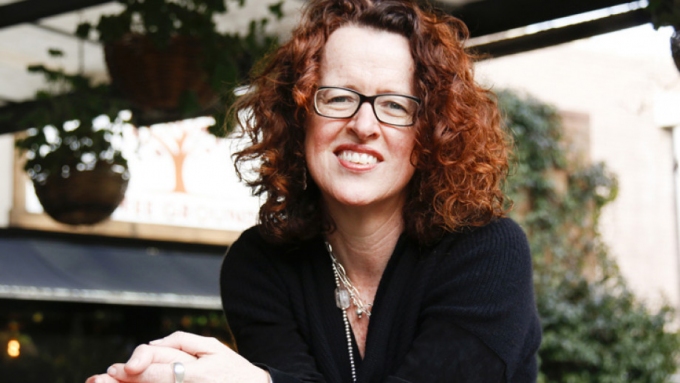Can you make engineers poets and poets engineers? And if you can, how vital is this?
These are some of the key questions being tackled by ANU Distinguished Professor Genevieve Bell and her colleagues at 3Ai - the Autonomy, Agency and Assurance Institute – who are exploring how you keep humanity in technology.
For decades Distinguished Professor Bell - who is a cultural anthropologist, technologist and futurist - has been working on the relationship between cultural practice and technology development.
“Twenty years in Silicon Valley has left me with the distinct sense that we need to keep reasserting the importance of people, and the diversity of our lived experiences, into our conversations about technology and the future,” she says about 3AI and her role as its inaugural director.
“I have always felt I have an obligation to build the future I want to see. I came home to Australia and founded the 3A Institute to do just that.”
For this important work, Distinguished Professor Bell has now been recognised as one of five new Honorary Fellows elected to the Australian Academy of Humanities. It’s the first time Honorary Fellows have been elected.
“Our five new Honorary Fellows have made significant contributions to the humanities and the arts, and to Australian cultural life,” Head of the Academy Professor Lesley Head said.
“In the words of Norbert Weiner, father of cybernetics, ‘‘either the engineers must become poets, or the poets must become engineers’,” Distinguished Proessor Bells says.
“Of course, he said that in 1950. Seventy years later, it still feels like good advice. Steve Jobs used to say something similar about the importance of art in making technology - ‘it’s technology married with liberal arts, married with the humanities, that yields us the results that make our heart sing’.
“From my experience trained as a cultural anthropologist working at the intersection of technologies, people and the environment, I think we have active choices to make about what our futures looks like. Everyone needs to be in that conversation - the assumptions of one discipline are the questions of another.”
Distinguished Professor Bell now joins a small and rare group of scholars who have been elected to both the Australian Academy of Humanities and the Australian Academy of Technology and Engineering, straddling both science and the humanities.
“The Learned Academies are special places where deep, new and radical thought have a voice,” Distinguished Professor Bell says.
“Collaboration between them is always crystalising and creative. I am honoured to be recognised by the Australian Academy of Humanities as well as the Australian Academy of Technology and Engineering. I hope that there will be more people who are recognised across both in the future. Because bringing together the disciplines is one path to hope and renewal.”
Before joining ANU, Distinguished Professor Bell spent 18 years in Silicon Valley helping guide Intel’s product development by developing the company’s social science and design research capabilities.
Earlier this year she was named the world’s inaugural Engelbart Distinguished Fellow by SRI International.
Other ANU scholars recognised
Three ANU scholars have also been recognised for their humanities work, as part of 22 newly elected Fellows to the Australian Academy of Humanities.
The fellowships, which are the highest honour for the humanities in Australia, recognise “distinguished achievement in the humanities and arts disciplines and to Australian cultural life”.
Professor Katherine Bode has been recognised for work in the digital humanities, literary studies, and book history, and quantitative and digital methods for literary studies.
Professor Bronwen Douglas is elected for her ethno-history of Melanesia, regional histories of Oceania and the global history of the human sciences.
And Professor Jane Simpson has been named a Fellow for her work on the Australian Indigenous languages, and the development of Indigenous children’s language. This honour follows her election to the Australian Academy of Arts and Social Sciences earlier this year.

